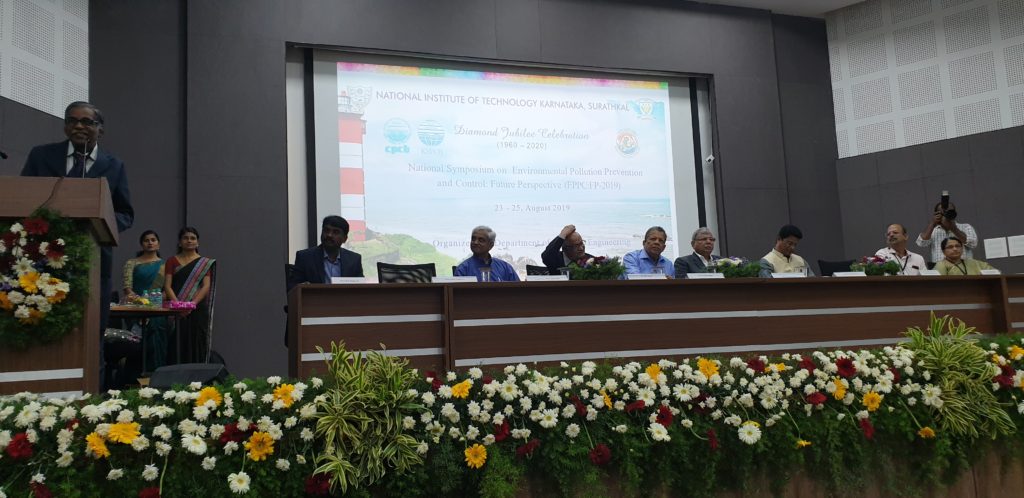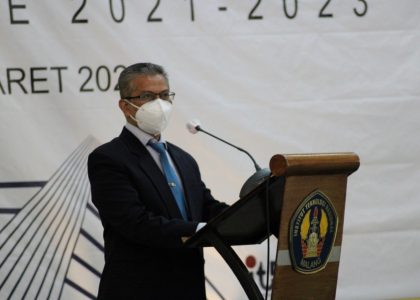The Department of Chemical Engineering at the National Institute of Technology, Karnataka (NITK), Surathkal, India jointly with the Central Pollution Control Board, has organized the National Symposium on “Environmental Pollution Prevention and Control: Future Perspective” from 23 to 25 August 2019, as a part of the Diamond Jubilee celebrations of NITK.

Prof. C. Visvanathan was invited to deliver a key note speech in the symposium. Prof. Visu’s trip was facilitated by the AISTDF – SERB, DST, Govt. India sponsored project titled, “Synthesis of β-cyclodextrin Nickel Ferrite Nanoparticles for the Removal of Pharmaceutical Compounds from Aqueous Systems”. This is a part of the on-going 3-year research project in collaboration with Prof. Raj Mohan of the NIT-K Chemical Engineering Department.
Prof. Visu delivered a key note speech entitled “ Waste 4.0 – Bridging the Digital Revolution in Waste Management”, which focused around the interventions of digital technologies in waste management that can be used as a pivotal tool to support and implement sustainable waste management in the future.
In his speech, Prof. Visu also presented the development stages of various technologies in different steps of waste management, such as collection, transportation, treatment, material recovery facility, landfills, and waste to energy technologies, and also indicated the current technology adaptation status in India. This lecture was well received by more than 300 participants present at this conference.




